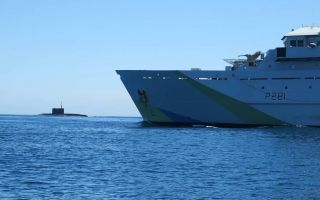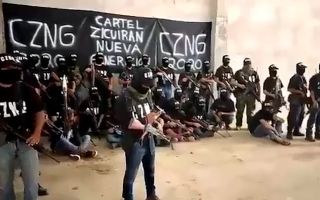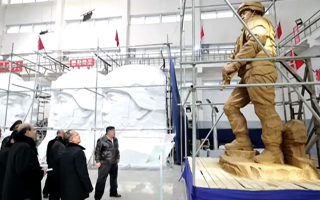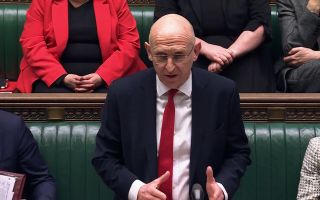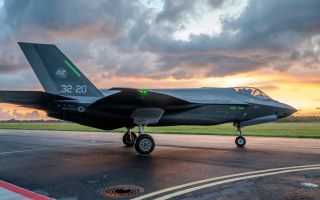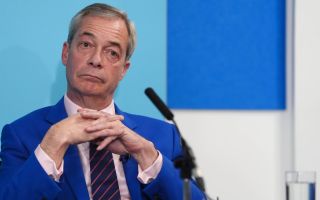Incompatible: Meet the RAF hero firefighter who was forced out of the military
Carl Austin-Behan was supposed to have had a long career in the Royal Air Force.
He had, at a junior level as a firefighter, demonstrated remarkable bravery in pulling a pilot from the cockpit of a burning aircraft.
But the promise of a glittering life in the military came to a sudden and shattering end.
It was proper zero-to-hero stuff, and this is his incredible story.
- Why Royal Marines always wanted to fly in the King's Wessex helicopter
- In pictures: King Charles' military career
- Military's new Commander-in-Chief King Charles III vows to serve with 'loyalty, respect and love'
On 30 September 1992, the crash bell in SAC Austin's fire station sounded. It meant one thing…
"State one, state one, Hawk aircraft!" Carl recalls almost 32 years on.
"You don't really hear what's being said to you then because you're just automatically thinking about what's going on," he explained.
Outside near the runway, a Hawk T1 – the same aircraft used today by the Red Arrows – had crashed.
In it, unconscious and trapped in the flames, was a trainee pilot.
"We got there, me and this other lad. We realised the first pilot had ejected, but the second pilot was still trapped inside the aircraft.
"It was on fire."
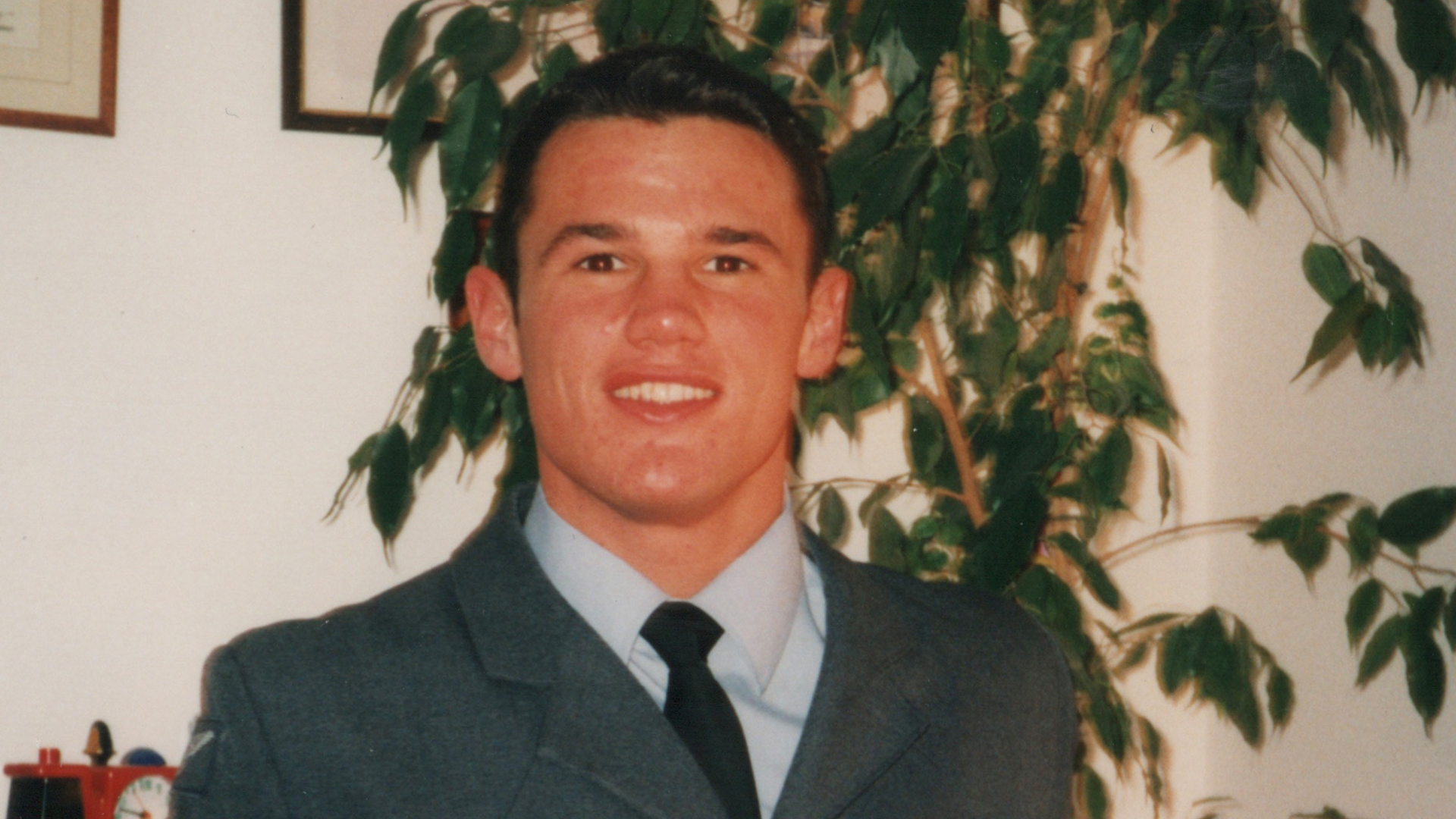
Carl climbed onto the aircraft. His colleague pulled the ejection cord on the canopy. It allowed Carl to reach into the cockpit, freeing the pilot from the flames.
It was an action that led to the 20-year-old firefighter being recognised at the highest levels for his bravery.
In the weeks following the rescue, Carl was presented with a Good Show award by the RAF and a prestigious bronze award by The Humane Society – granted by the sovereign.
But unbeknown to his superiors in the Royal Air Force, their new poster boy was secretly breaking military law.
Carl was gay.
Homosexuality in Britain's Armed Forces remained illegal until January 2000.
It had previously been a crime in the civilian world, but that ended in 1967. However a couple of exceptions remained in law, including the right to serve in the military as an openly gay man or woman.
Carl was aware of the law fully. He recalls being handed a document outlining the policy when he first joined the RAF.
"When I went to the careers office on Fountain Street in Manchester, they gave me a little chitty and said to me 'Can you sign that – you're not gay are you?'.
"They then laughed and I signed it. I've still got that piece of paper. It does state on it that if you're caught doing homosexual acts then you will be court-martialled."
Carl frankly admits that he simply decided to pursue a double life from day one of joining the service.
"I was living a double, sometimes even a treble, life because of my sexuality," he said.
But this double life, weekdays on the base and weekends on Manchester's gay scene, eventually caught up with him.
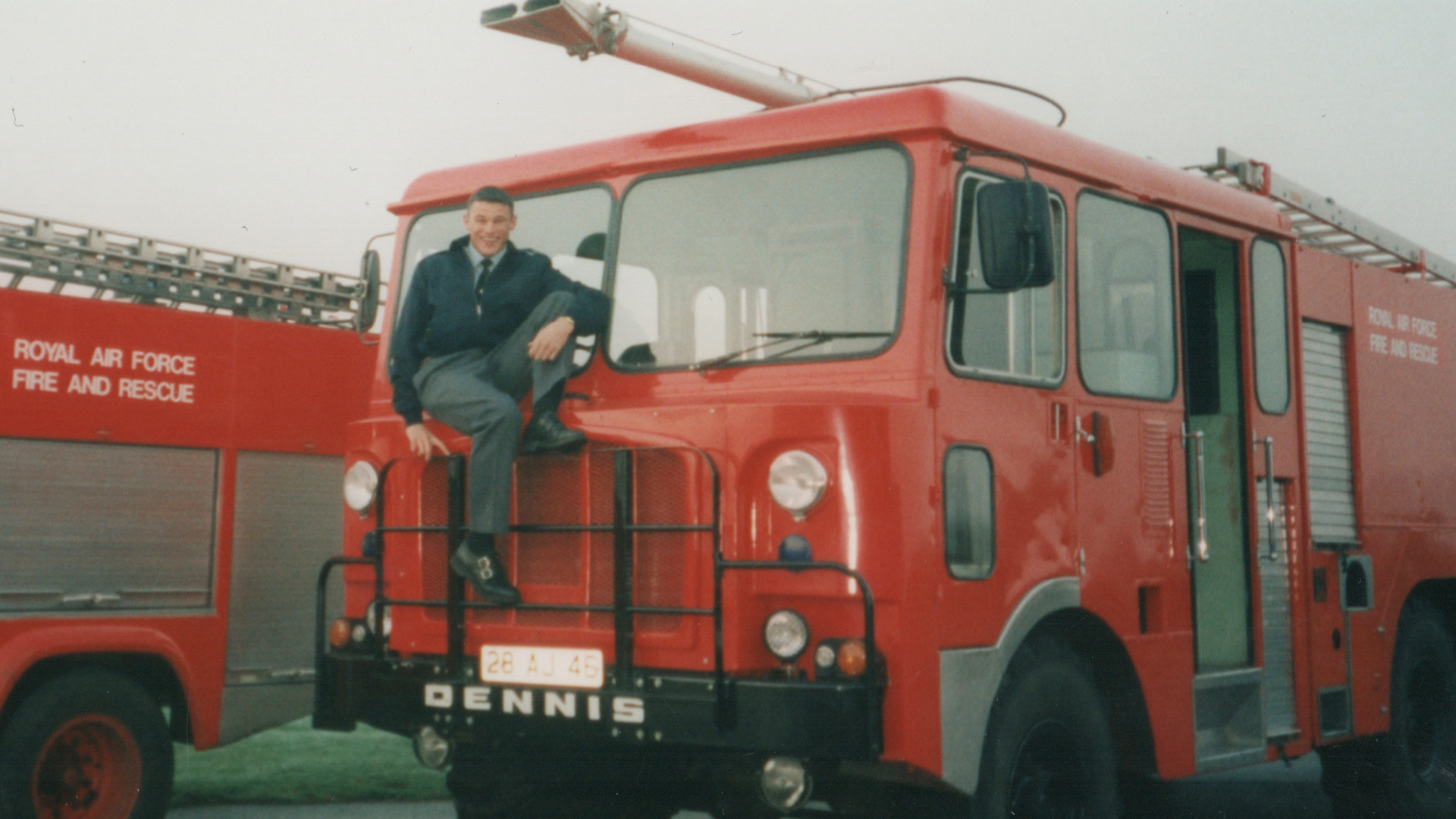
In 1997, five years on from his heroics on the runway that day, Carl was summoned to his OC's office in the Squadron Headquarters.
"I went there. I had to go in uniform. And there was the padre, two RAF police and the Officer Commanding.
"And he literally just asked me 'SAC Austin, do you have homosexual tendencies?'.
"I sat there and froze for a second. They asked me again and I just burst into tears. So I think I'd answered the question for them."
Carl was informed on the spot that he was no longer compatible with military service, and his services in the Royal Air Force were no longer needed. He was given 15 minutes to grab what belongings he could and get off camp.
"I wasn't allowed to say goodbye to anybody. I was given a police escort to pack three big boxes and was told they'd be delivered to an address of my choice in the UK – and that was it.
"I was marched out of camp and I just remember being in my car in a layby outside Honington's gates and sitting there for three hours crying.
"I'd lost my career, I'd lost my job, my home, lost all my friends, lost everything within 10 minutes for my sexuality which had no impact on any of the work I did."
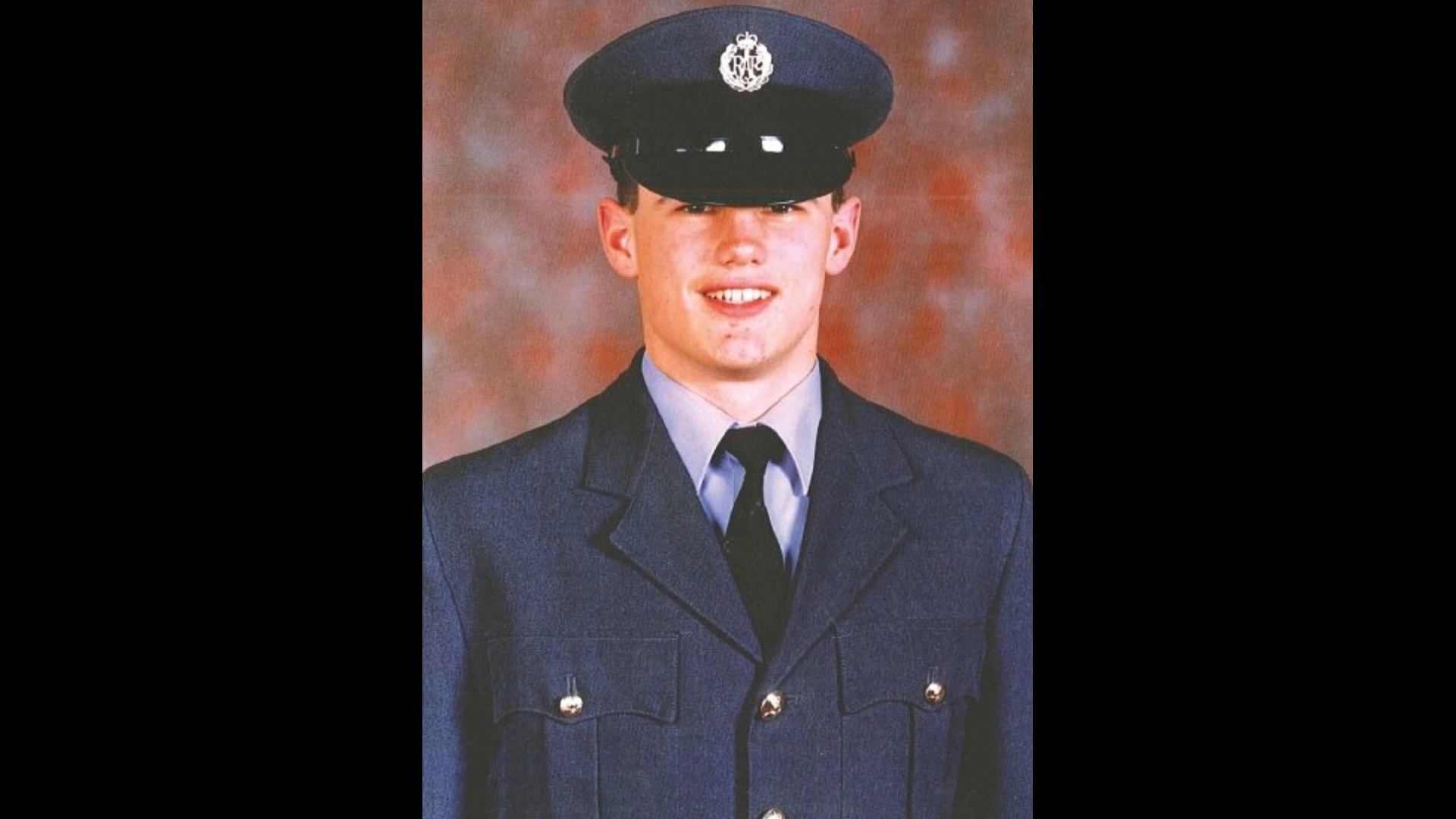
Most people would likely find it impossible to recover from a shock like this. But not Carl.
The second part of his story – life after discharge – is in many respects more remarkable than the first.
It's a life journey that takes him from the layby outside Honington crying in despair, to the heights of political office and the awarding of an OBE – quite the turnaround from being told by his boss his services were no longer required by the Royal Air Force.
It began by converting the experience of being discharged from the military into a positive energy that could be used as a force for good.
It led Carl to activism, specifically focused on his place in the LGBT community at the turn of the millennium.
The culmination of these early years of campaigning saw Carl crowned in what was back then a prestigious contest in the LGBT community – Mr Gay UK.
"When I entered, I thought, this will show the Air Force what for!" he said.
He confesses a major element of the competition was a beauty pageant, but he applied his natural flare for activism, born out of his own experience of lawful discrimination at the hands of the Armed Forces, into pulling off a convincing win, and was crowned the winner after a nationwide phone vote in 2001.
Carl reflects that "it was about that fact of trying to turn the negative into a positive"
And it didn't end there.
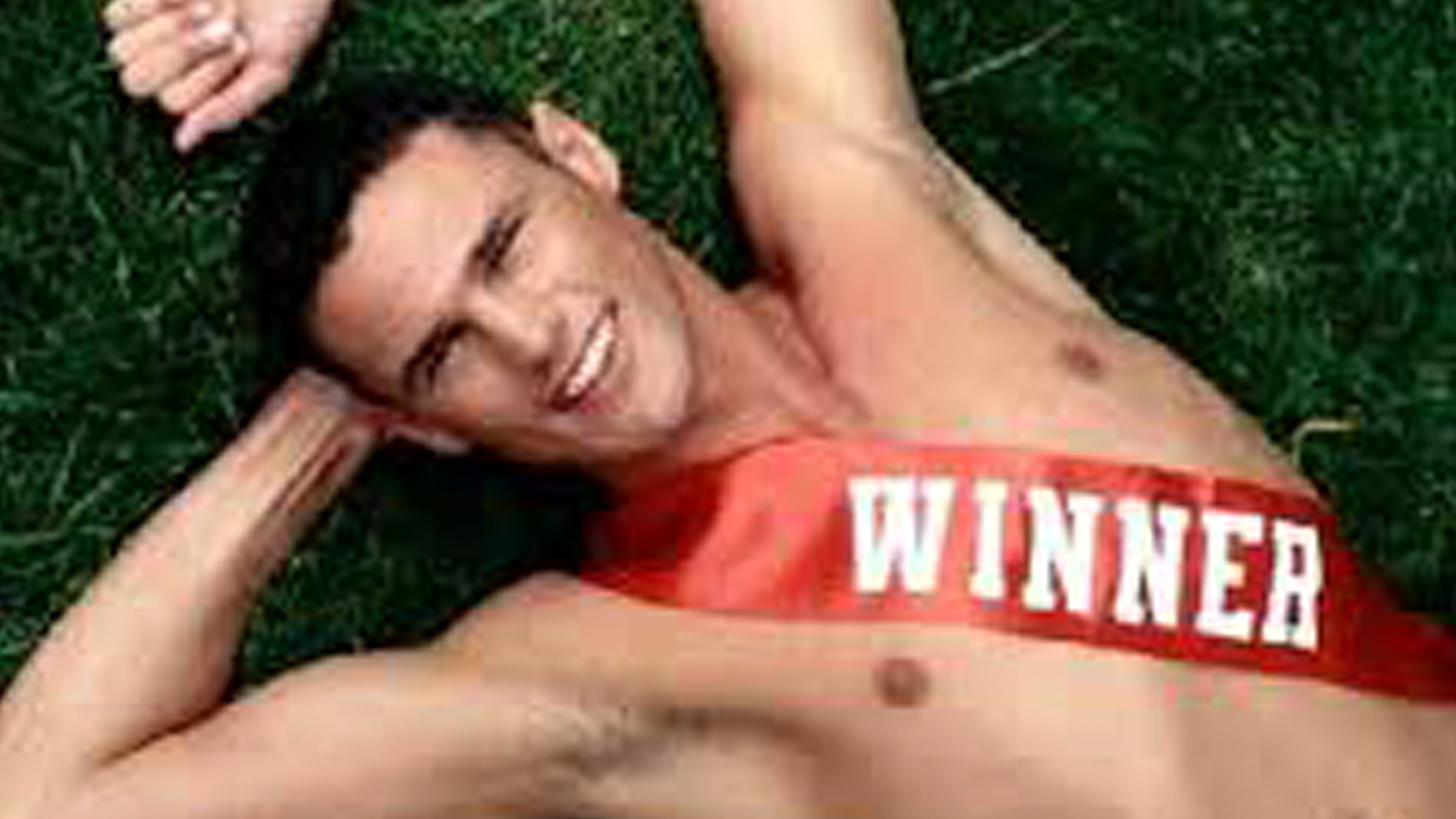
In the years that followed, buoyed by the success of winning a popular contest by public vote, Carl turned his attention to politics.
It led to him becoming a local councillor and, in 2016, the Lord Mayor of Manchester.
In fact, Carl was the first ever openly gay Lord Mayor in the country, a position that brought with it more scope to talk publicly about the things that mattered most to him – such as the rights of LGBT people, specifically in the Armed Forces.
He had never forgotten the hurt of being told his sexuality was incompatible with military service.
"I was one of the founding members of Fighting With Pride," he explained.
"It was very much about starting a new charity supporting LGBT veterans that had been affected by the ban between 1967 and 2000."
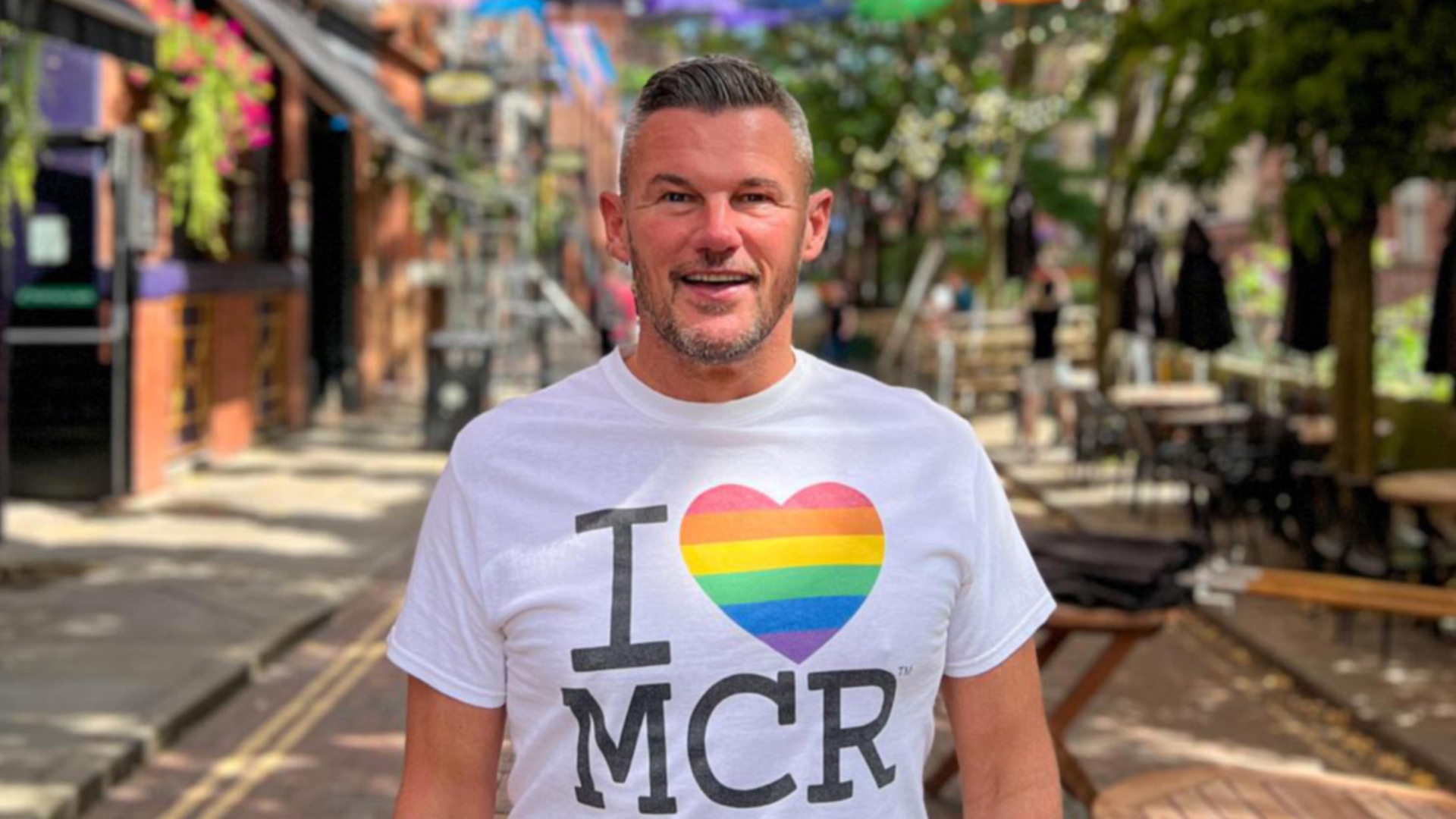
Fighting With Pride went on to secure an independent, judge-led inquiry into the historical treatment of LGBT people within Britain's Armed Forces. It resulted in the Etherton Report, which, among 49 recommendations, said those affected were entitled to financial compensation and an apology.
"[The apology from the Prime Minister] was an amazing day. I was there," he recalled.
"But they need to follow that through now. They seem to be stalling on an agreement that they made.
"Yes, some of those 49 recommendations are in place, but we are talking about compensation here."
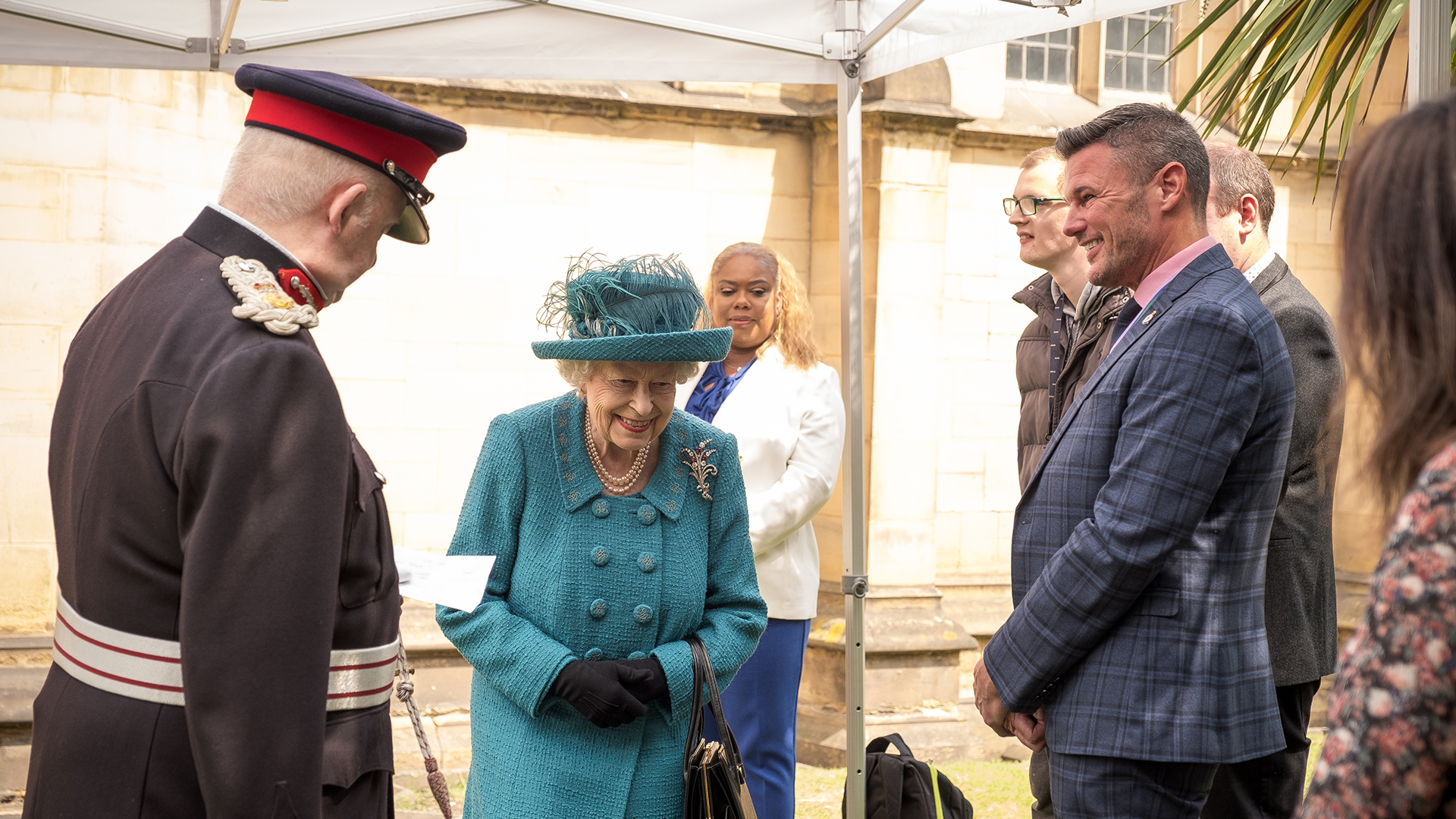
Carl revealed that he had, until recently, buried the trauma of what he went through in the 1990s at the hands of the Armed Forces.
But partly as a result of the Etherton Inquiry he began to understand how those events affected his life.
Carl said: "I sometimes forget how badly I was treated back then. I parked it in the back of my head somewhere and ignored it.
"But actually it was horrific. And that's where the compensation comes in. Some of the people I'm having conversations with, the way they were treated, some people's families were ripped apart. Some of them went to prison."
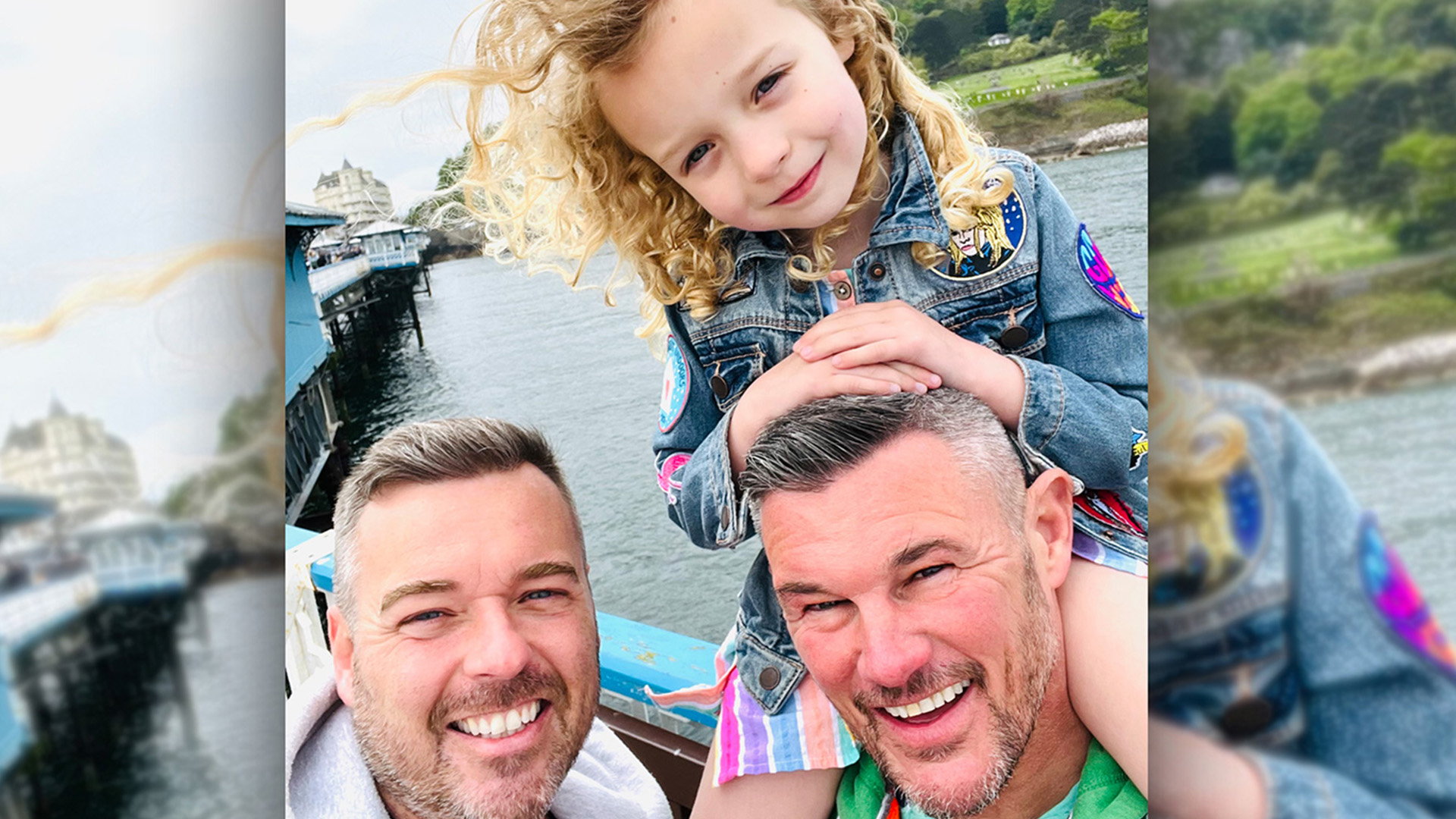
To cap off what has been an incredible life's work – to date – Carl received an OBE in 2019 for his service to charity and the LGBT community.
Today, he lives in the city he loves – Manchester – with his partner of 20 years Simon and their five-year-old daughter Willow.
He is an embodiment of 'hero to zero' – but Carl Austin-Behan came back again!

